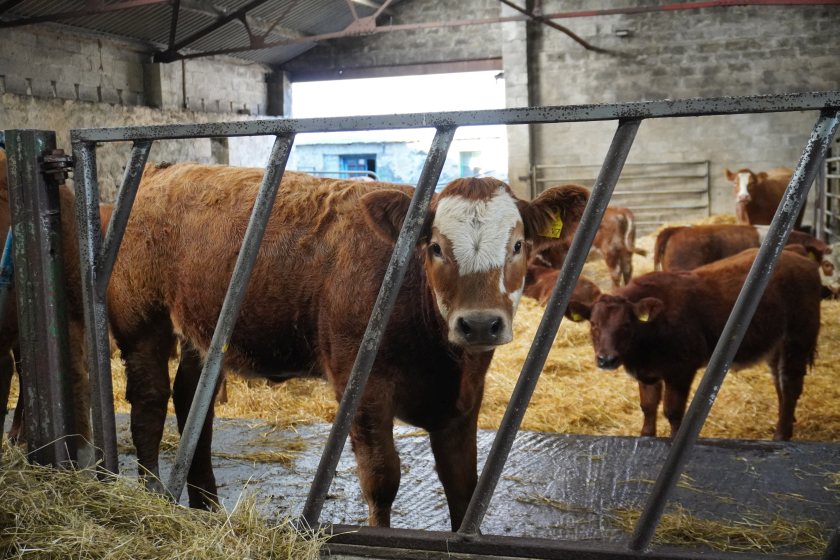
Farmers are being urged to plan ahead and vaccinate calves for pneumonia this autumn, after a Scottish Monitor Farm revealed an outbreak cost the business almost £8,500 in lost performance and treatment bills.
At the Strathspey-based farm - one of nine Monitor Farms in Scotland - Malcolm Smith and his family run 150 suckler cows, producing growthy store cattle sold at 12–14 months.
Calves are weaned and housed in October and November, with pneumonia vaccination usually part of the routine. But in autumn 2023, a hectic workload and sudden weather change meant spring-born calves were brought inside without being vaccinated.
By December, the calves were showing signs of pneumonia. Jane Harley, clinical director at Strathspey Vets, explained: “They were treated and we took samples, which confirmed this was RSV.”
She noted that many vets now offer subsidised testing through pharmaceutical companies: “The tests will confirm you are treating for the right thing.”
The immediate vet and medicine bills came to around £800, with laboratory fees adding £300. But the real damage lay in lost growth performance.
The farm was feeding to achieve daily liveweight gains (dlwg — daily growth) of 1kg per head, yet during the outbreak this fell to just 0.6kg.
Over two months, cattle gained only 36kg on average when 60kg had been expected. Some calves never fully recovered, with permanent lung damage limiting growth.
With feed costed at £1.35 per head per day, the reduced performance meant the diet became far less efficient. Store sale weights dropped by an average of 24kg, equating to nearly £79 per calf at a sale price of £3.29/kg.
Across the group, that represented a performance loss of about £6,800. Adding in veterinary and handling costs brought the overall financial hit to around £8,500.
Malcolm admitted: “We’ve been open about the costs and losses as it is scary. If you’re feeding for dlwg of 1kg and getting 0.1kg, which we were in some cases, it soon adds up.
"Vaccinating would have cost us £700 and we have made it a priority now.” This autumn, the Smiths will vaccinate calves at least two weeks before housing to reduce stress and risk.
Jane Harley emphasised the wider lesson: “The farm is nearly £8,500 worse off as a result of this outbreak – and there is the time involved to factor in too.”
She urged farmers not to overlook pneumonia, even if only a few animals are affected. “Many farms have the odd case of pneumonia here and there, and it’s easy to forget that these do mount up, so talk to your vet even if it’s just a few animals.
"Ask for a test to see what you are contending with and make sure you are treating for the right thing.”
Her message was clear: “Talk to your vet at any time regarding vaccines as each farm will be different depending on what is causing the pneumonia but also what the management system is in relation to calving periods, housing and so on.
"My main message is to talk to your vet, and the key thing from this case study is that making time to vaccinate – and for the right thing on your farm – is crucial.”
This case highlights that prevention is far cheaper than cure. For the Smiths, a £700 vaccination bill would have averted an £8,500 loss — a reminder for all producers to prioritise pneumonia protection this housing season.
